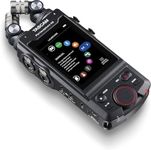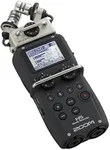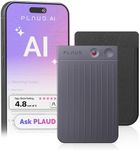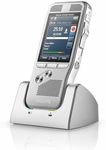Best Voice Recorders
From leading brands and best sellers available on the web.
Zoom
ZOOM H6essential Handy Recorder – Portable 32-Bit Float Audio Recorder with 6-Track Recording – Ideal for Podcasts, Music, Film Sound – Black

TASCAM
27%OFF
TASCAM Portacapture X8 - Portable 6+2-Track High-Resolution 32-bit float/192-kHz Recorder, usb2.0

Zoom
5%OFF
ZOOM H1essential Handy Recorder – Portable Audio Recorder with 32-Bit Float for Music, Podcast, Film & Content Creation – Black

TASCAM
15%OFF
Tascam DR-40X portable four-track audio recorder and USB interface

Zoom
Zoom H5 4-Track Portable Recorder for Audio for Video, Music, and Podcasting, Stereo Microphones, 2 XLR/TRS Inputs, USB Audio Interface, Battery Powered

PLAUD
PLAUD NOTE AI Voice Recorder with Case - App Control, Transcribe & Summarize with AI Technology - Support 112 Languages, 64GB Memory, Audio Recorder for Lectures, Meetings, Calls, Black

TASCAM
5%OFF
Tascam DR-05XP - 2-Channel 32-Bit Float Portable Handheld Recorder With USB-C Audio Interface

Zoom
ZOOM H2essential Handy Recorder – Portable 32-Bit Float Audio Recorder with 3 Microphones for Surround Recording – Ideal for Podcasts, Music, Livestreams – EU Version – Black

OM SYSTEM
OM SYSTEM LS-P5 Hi-Res Audio Recorder with Tresmic II 3-Microphone System, widespread Directional Control, Built-in Bluetooth for Headphone Monitoring and Smartphone Control, 16 GB memory, 37h runtime






